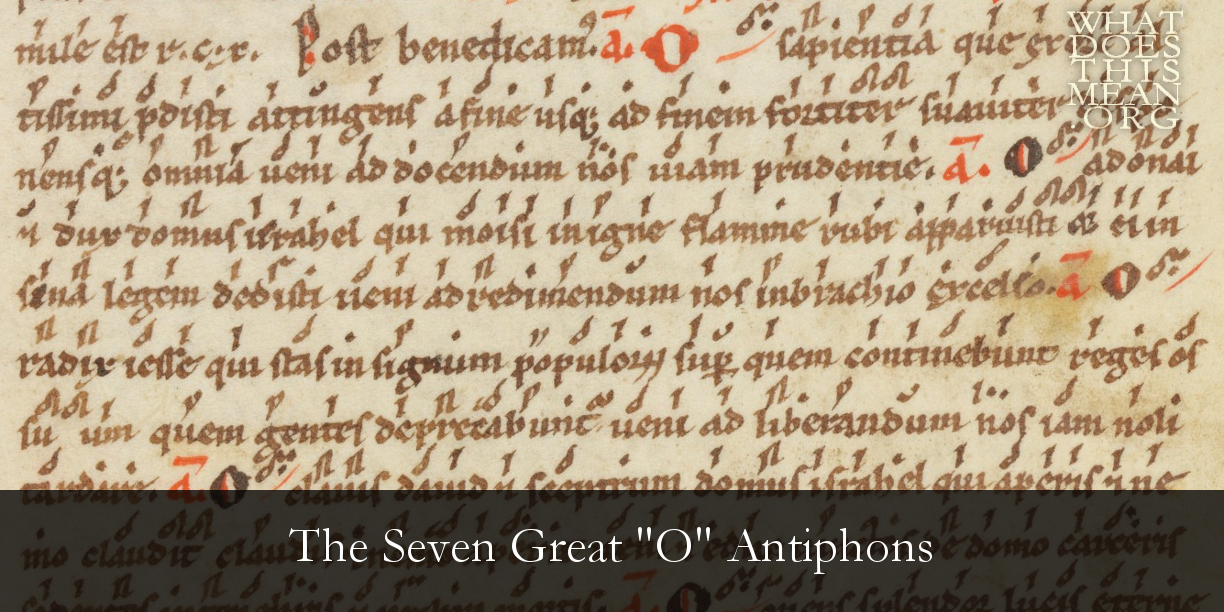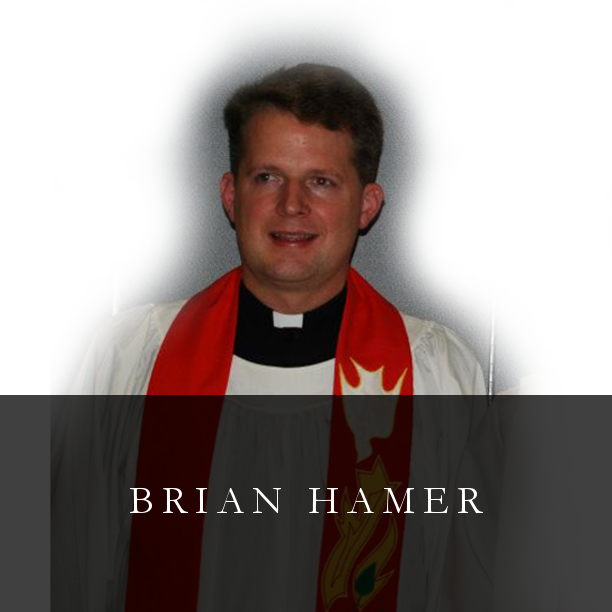And let the skies pour down righteousness.
O Wisdom,
proceeding from the mouth of the Most High,
pervading and permeating all creation,
mightily ordering all things:
Come and teach us the way of prudence.
O Adonai and ruler of the house of Israel,
who appeared to Moses in the burning bush
and gave him the Law on Sinai:
Come with an outstretched arm and redeem us.
O Root of Jesse,
standing as an ensign before the peoples,
before whom all kings are mute,
to whom the nations will do homage:
Come quickly to deliver us.
O Key of David and scepter of the house of Israel,
you open and no one can close,
you closed and no one can open:
Come and rescue the prisoners who are in darkness
and the shadow of death.
O Dayspring,
splendor of light everlasting:
Come and enlighten those who sit in darkness
And in the shadow of death.
O King of the nations, the ruler they long for,
The cornerstone uniting all people:
Come and save us all, whom You formed out of clay.
O Emmanuel,
Our king and our Lord,
The anointed for the nations and their Savior:
Come and save us, O Lord our God.
Ascription: O Emmanuel
Description: Our king . . . their Savior
Petition: Come and save us, O Lord our God.
Survey all seven of the “O” Antiphons and see how they all pass the three-part test for sermons, well known to listeners of the Lutheran radio program, “Issues, Etc.”:
- How often is Jesus mentioned?
- Who is “doing” the verbs?
- What is Jesus doing for us?
It is a fitting tribute to these texts – short and simple, yet theological laden – that they have pretty well “succeeded” from the Magnificat through the years and taken on a life of their own. Listen, for instance, to the “O Wisdom” (O Sapientia) antiphon sung in plain chant. Notice how the music serves as a simple vehicle to carry the text for December 17:
Pastors and church musicians who wish to build corporate services around the Great “O” Antiphons might sing this chant setting. If the Gregorian notation and the Latin are a bit daunting, then church musicians might utilize the version in The Brotherhood Prayer Book (pp. 397-399), which uses the same music in this video, but with an English text. A more readable edition, using the traditional five-line staff with English text, is available in the aforementioned Oremus: A Lutheran Breviary (pp. 266-269). There is also a very basic edition with Psalm pointing in Lutheran Service Book, located next to its hymn adaptation, “Oh, Come, Oh, Come, Emmanuel” (#357).
In my estimation, the most accessible and appropriate choral setting for the parish choir comes form the Canadian composer, Healey Wilan (1880-1968). In the following setting of “O Emmanuel” (please see the text above), listen for the natural rise and fall of the melodic line, which is reminiscent of the plain chant setting. Also notice the slight break in the music before the word “come,” which serves to distinguish the church’s petition for the presence of the incarnate Christ. Indeed, the natural rise and fall of the melodic line seems to depict the church’s prayer rising to God and God’s Son descending to earth:
Perhaps the most profound setting of the antiphons in recent years comes from the Estonian composer, Arvo Pärt (b. 1935). Listen to his setting of “O Wisdom” (sung in German; please see text above) and note the sense of mystery and majesty in his musical text painting. The carefully constructed music is a perfect match for the text, “mightily ordering all things”:
To be sure, this setting of all seven antiphons is difficult, and therefore probably out of reach for most parish choirs. It requires a particularly strong bass section, good German diction, and intermediate musical literacy. But even if the complete setting of all seven antiphons is not heard in the sanctuary, listening to all seven settings in one’s private music collection is an Advent treasure not to be missed.
Pastors and church musicians who wish to utilize the “O” Antiphons as part of their corporate worship life might consider incorporating them into Vespers or Evening Prayer (after the Psalm) in the following sequence, to be repeated for each antiphon:
Scripture Reading (carefully chosen to coordinate with each antiphon)
Antiphon (sung by the choir or perhaps a soloist or both)
The corresponding stanza of “Oh, Come, Oh, Come, Emmanuel” (Note: the seven antiphons and the seven hymn stanzas are arranged differently, so careful planning of the service order is a must!)
If all of the antiphons are used in one service (perhaps on the last Wednesday before Christmas Day?), then there is really no need for a sermon, although a short meditation on one or more antiphons is appropriate.
The text, tune(s), and context of the Great “O” Antiphons are a Christological, musical, and liturgical treasure for individual and corporate Advent devotion. Here the Bride readies herself for the Lord to drop down from heaven and pour down Christ’s own righteousness on His people. Perhaps the Collect for Advent IV in the historic one-year lection puts it best:
| Stir up, O Lord, we beseech Thee, Thy power, and come and help us with Thy great might, that by Thy grace whatsoever is hindered by our sins may be speedily accomplished through Thy mercy and satisfaction; who livest and reignest with the Father and the Holy Ghost, ever one God, world without end. Amen. |



 RSS Feed
RSS Feed
